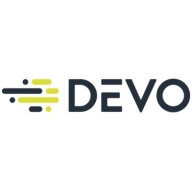

OpenText Operations Bridge and Devo compete in the domain of IT infrastructure monitoring and event management. Devo appears to have the upper hand due to its real-time analytics and flexible pricing model, although both products have their unique strengths.
Features: OpenText Operations Bridge integrates various operation data sources for a unified view, enabling centralized alert management and third-party integration. It offers scalability and automation capabilities. Devo is notable for its Activeboards, real-time analytics, and multi-tenant architecture, providing in-depth visual analytics and efficient data management across environments.
Room for Improvement: OpenText Operations Bridge could benefit from improved scalability, a less complex licensing model, and a more user-friendly architecture. Devo should enhance its log parsing capabilities, increase pre-built integrations, and optimize pricing structures to prevent unexpected costs.
Ease of Deployment and Customer Service: OpenText Operations Bridge is often implemented on-premises, creating challenges in scalability and integration. Its customer service performance varies based on location and case management. Devo's cloud-first strategy provides deployment flexibility, but customer service quality can fluctuate, with some reports of less specialized support.
Pricing and ROI: OpenText Operations Bridge is often seen as expensive, especially for smaller enterprises, with a complicated licensing model affecting cost predictability. Its ROI depends greatly on module usage and integration. Devo's data ingestion-based pricing is straightforward but may include hidden costs, impacting overall expenses. Both products promise ROI through operational efficiency, provided cost management is effectively handled.


Devo is the only cloud-native logging and security analytics platform that releases the full potential of all your data to empower bold, confident action when it matters most. Only the Devo platform delivers the powerful combination of real-time visibility, high-performance analytics, scalability, multitenancy, and low TCO crucial for monitoring and securing business operations as enterprises accelerate their shift to the cloud.
We monitor all IT Operations Analytics reviews to prevent fraudulent reviews and keep review quality high. We do not post reviews by company employees or direct competitors. We validate each review for authenticity via cross-reference with LinkedIn, and personal follow-up with the reviewer when necessary.